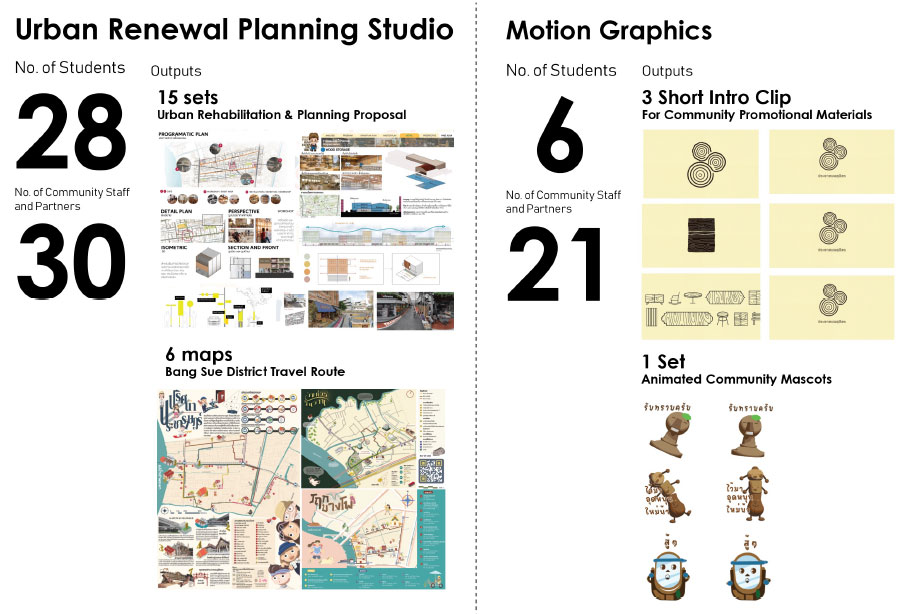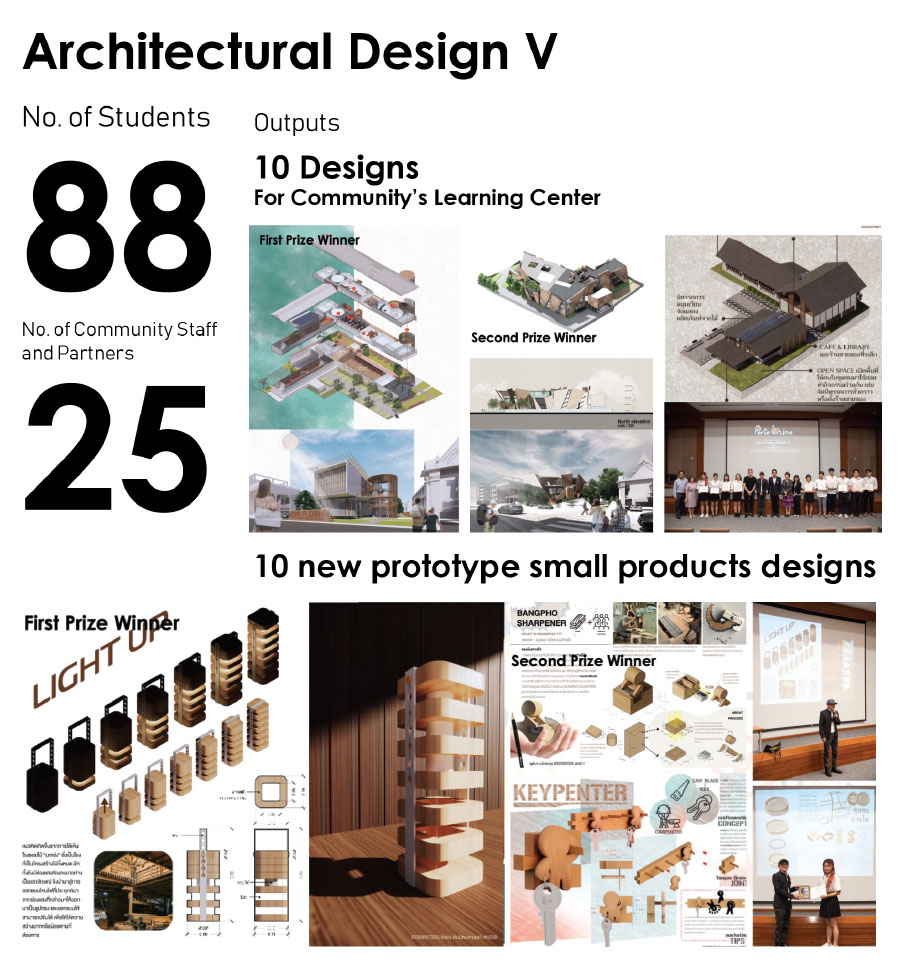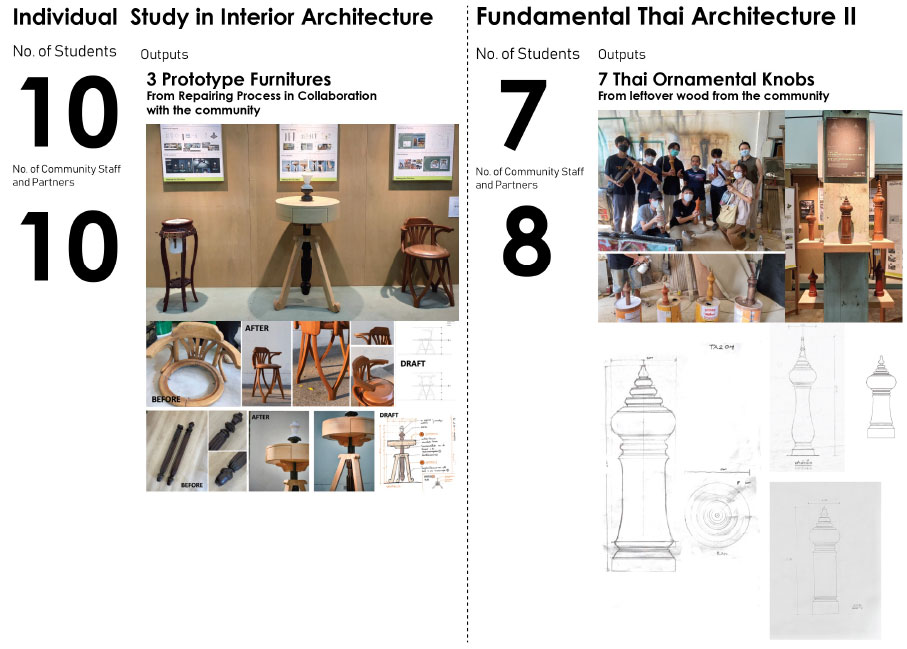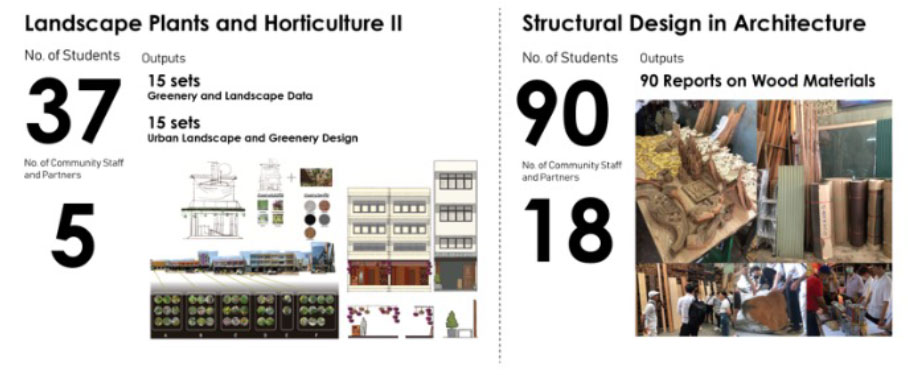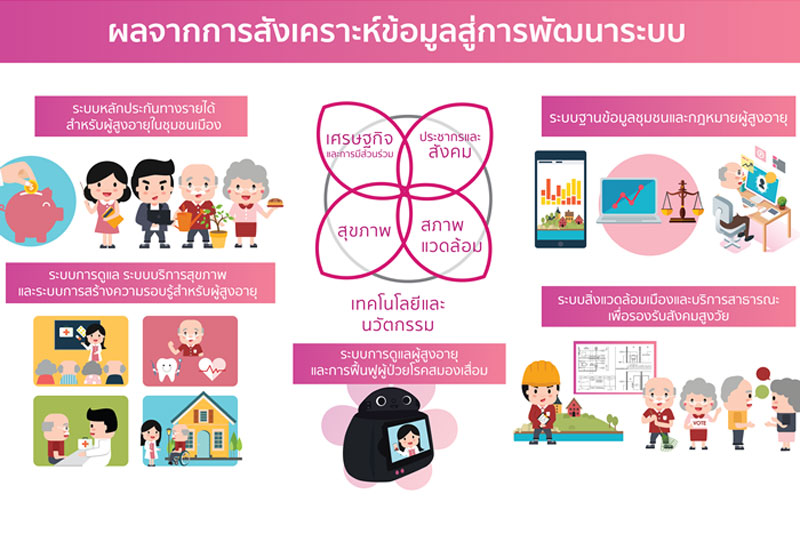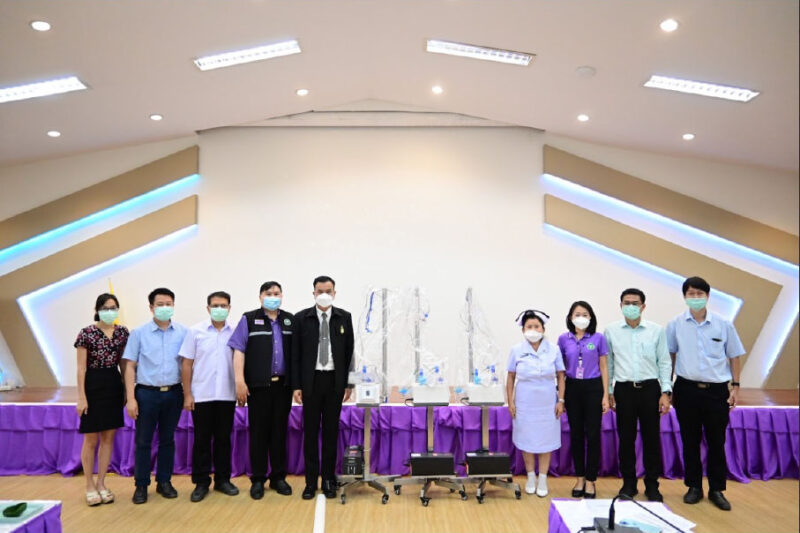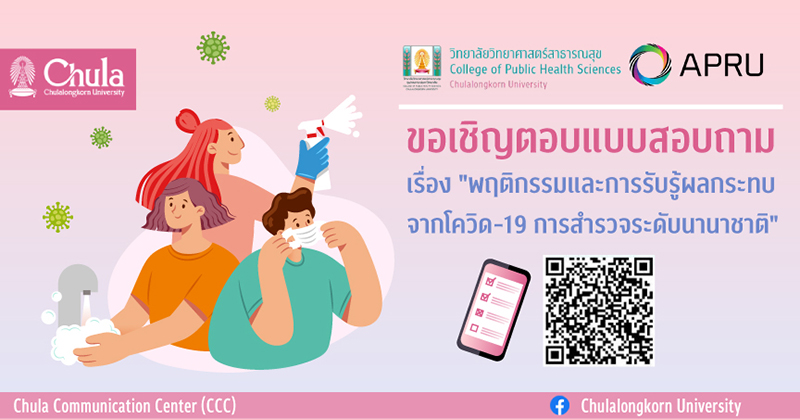Bang Pho Living Lab: Learning Platform Co-Creation through Bang Pho Wood Handicraft community conservation and Development Planning
“The Faculty of Architecture at Chulalongkorn University, with funding from CU Social Innovation Hub, conducted the Bang Pho Living Lab project. The project aims to improve woodworking products and community environments in Bang Pho Wood Street and transfer community knowledge through the co-creation of a collaborative experimental space known as the ‘Living Lab’. A total of 266 students collaborated with the community across 7 courses, developing market-aligned woodworking products, enhancing the community, and participating in the Bang Po(ssible) 2: Co-Creation Learning Platform with Community exhibition in July 2023. This initiative led to the community’s recognition as one of Bangkok’s top 20 creative districts, increased interest and sales of woodworking products, and greater involvement of younger generations in woodworking and community management. This project serves as a model for implementing Living Labs to preserve local knowledge within the community.”
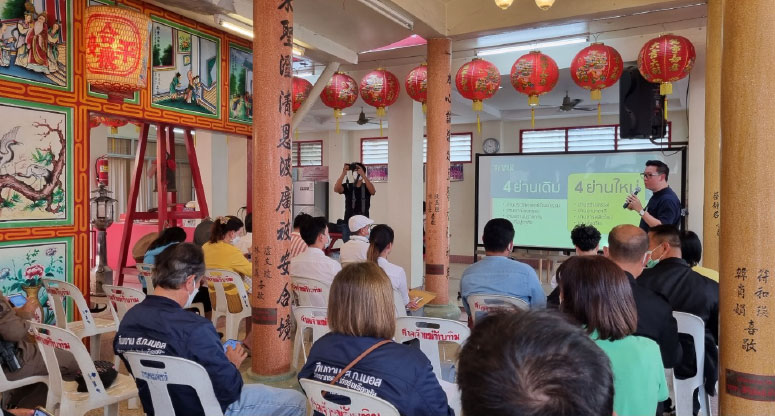
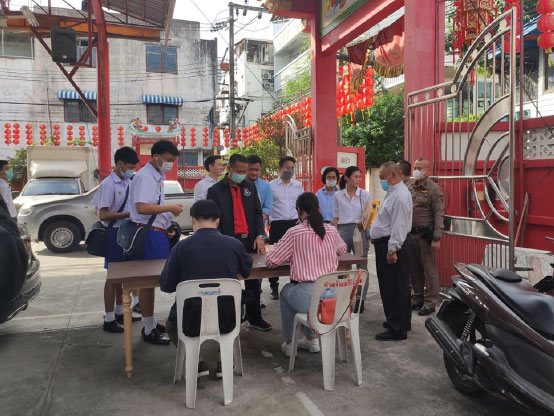
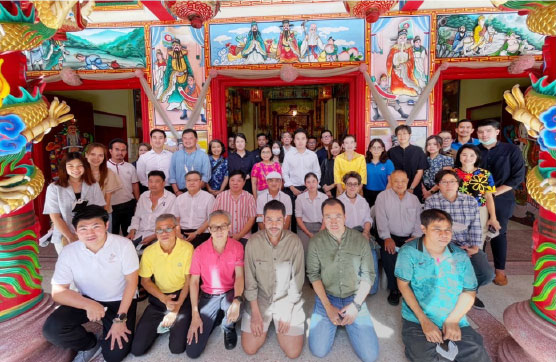
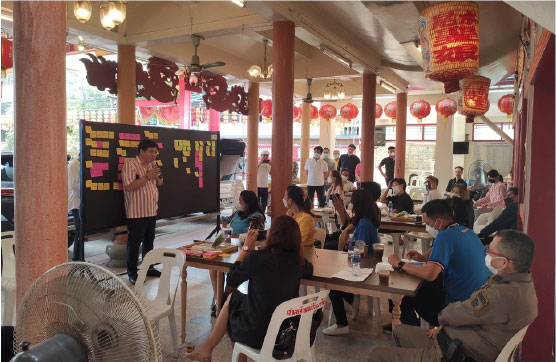
The Bang Pho Wood Street, situated on Soi Pracha Naruemit, Bang Pho, has been a rare hub for woodworking entrepreneurs in center of Bangkok, with these unique skills being passed down through generations of local craftsmen for over 60 years. However, changing urban lifestyles have caused product patterns and access to goods to no longer align with consumer demands. Consequently, the community’s economic and trade activities have declined significantly to 68%, collaboration among community members has dropped to 58%, and the community’s physical infrastructure has deteriorated. Additionally, environmental issues have arisen due to burning a substantial amount of unused wood materials, and younger generations are not inheriting woodworking knowledge. Due to these situations, this community is at risk of losing its unique cultural heritage and local wisdom. To address this, the Faculty of Architecture at Chulalongkorn University is conducting the Bang Pho Living Lab project, which aims to revitalize the community and adapt wood products for contemporary urban lifestyles. This initiative is funded by CU Social Innovation Hub.
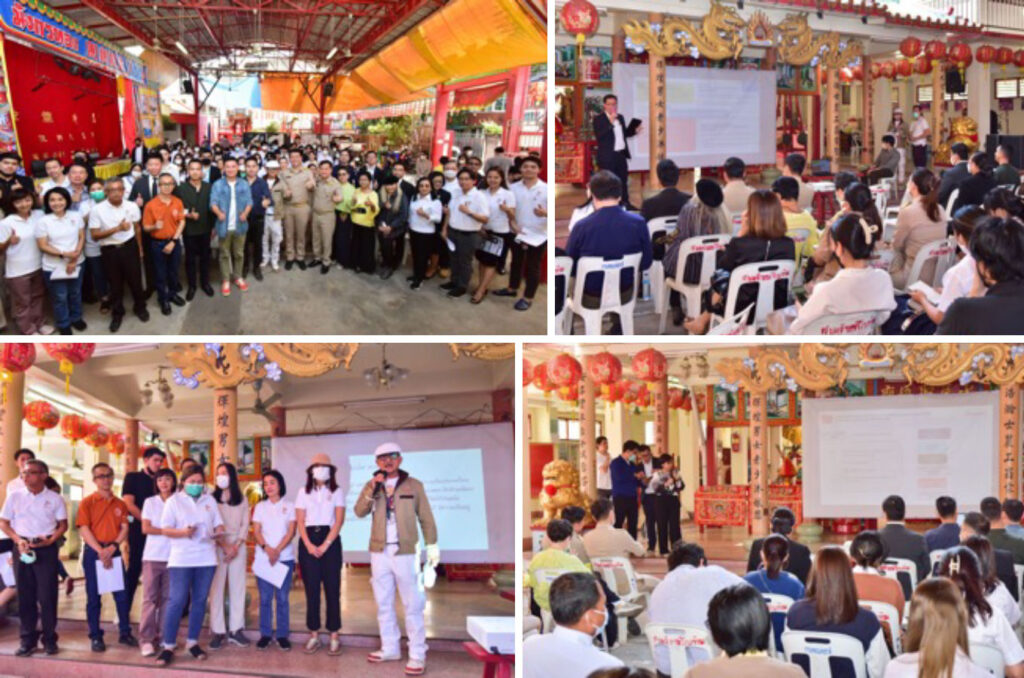
This research project fosters co-creation between the Faculty of Architecture, Chulalongkorn University and the Bang Pho community. It involves community planning, strategy formulation, and the transformation of Bang Pho into a creative and learning hub in Bangkok. The project includes collaborative research and activities across seven courses, including furniture design, landscape, urban planning, community revitalization, architectural design, and more, utilizing the Bang Pho community as the ‘Living Lab’ platform. This Living Lab is an extracurricular laboratory that serves as a real-world learning center for 266 students and engages more than 50 local entrepreneurs from over 200 community businesses. Knowledge is shared between students, faculty members, and the community, leading to the development of products and community spaces. The initiative also focuses on enhancing the identity and brand of the Bang Pho community with 15 participating organizations. This collaborative effort took place from 2022 to 2023, culminating in the ‘Bang Po(ssible) 2’ exhibition: ‘Co-Creation Learning Platform with Community’ in July 2023, attracting approximately 1,000 interested individuals and revitalizing the Bang Pho community effectively.
The Bang Pho Living Lab research project has increased the recognition of the Bang Pho community and has been selected as one of the 20 leading creative districts in Bangkok. The project has initiated community showcases and woodworking activities, leading to the development of livelihoods within the community. Activities such as repairing old furniture with modern materials and designing and creating new products have reduced the waste of wood materials, resulting in improved trade and the economy of the community. Younger generations have become interested in woodworking and community management, increasing the community management committee’s size from 10 individuals aged 45-60 to over 30 members, including a new generation aged 25-44. This research project can serve as a model for preserving local knowledge and the unique identity of communities through the Living Lab approach, which can be extended to conserve and develop existing communities among the more than 2,000 communities in Bangkok.
BY
- Faculty of Architecture, Chulalongkorn University
- Chulalongkorn University Social Innovation Hub
Related articles:
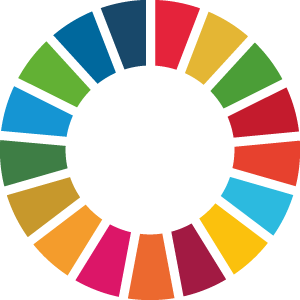
Related SDGs
Others
Chula ARi, an innovation that moves society
A model of multidisciplinary-approach project to tackle Thailand’s ageing society

